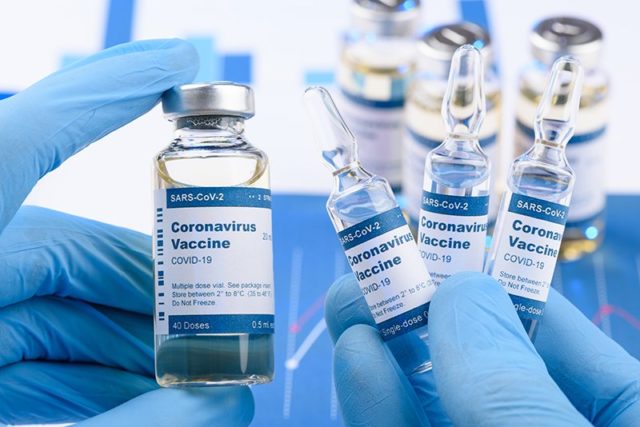
Amid delivery delays and concerns over rare but serious blood clots for the AstraZeneca and Johnson & Johnson COVID-19 shots, European officials are looking elsewhere for next year’s supply.
The European Commission has opted against renewing its vaccine contracts with AstraZeneca and J&J once they expire at the end of the year, Italian newspaper La Stampa reported Wednesday, citing an unnamed source from the Italian health ministry. Reuters also picked up the story.
Both shots have come under scrutiny over rare but serious cases of blood clots in people who had received the vaccines, prompting several countries to halt use of the AZ shot while the European Medicines Agency completed a follow-up safety review. Meanwhile, AstraZeneca has struggled to meet the delivery targets it originally laid out, while J&J just this week said it would delay its vaccine rollout in the bloc over safety concerns.
“The European Commission, in agreement with the leaders of many (EU) countries, has decided that the contracts with the companies that produce (viral vector) vaccines that are valid for the current year will not be renewed at their expiry,” La Stampa reported.
At the same time, the Commission is demanding answers from J&J over its “completely unexpected” delay, an EU official told Reuters Tuesday.
J&J and AstraZeneca did not immediately reply to Fierce Pharma’s request for comment.
AstraZeneca had originally committed to delivering 90 million doses to the EU in the first quarter of 2021, according to reports, but cut that target to 31 million in January, sparking a heated back-and-forth between the company and Brussels officials. It eventually said it would push to deliver 40 million doses, but in mid-March, dialed its estimate back to 30 million doses.
In last month’s supply update, AZ said it would aim to deliver 100 million doses to Europe in the first half of the year, a reduction of two-thirds from the company’s prior target of 300 million doses.
Johnson & Johnson, for its part, let European officials know it was “under stress” to meet its second-quarter delivery target back in early March. J&J stood firm on its “commitment to deliver 200 million doses of its single-dose COVID-19 vaccine candidate to the EU in 2021 starting in the second quarter.” A Reuters source noted J&J might still be able to hit that target.
RELATED: AstraZeneca COVID-19 shot tagged with new warning in EU, highlighting rare blood clot risk
Now, however, J&J is delaying its rollout for another reason. On Tuesday, the drugmaker said the U.S. Centers for Disease Control and Prevention and the Food and Drug Administration had recommended a pause on the vaccine’s use out of an “an abundance of caution” amid investigations into an extremely rare potential side effect involving blood clots with low platelets.
The company says it has been reviewing the cases with Europe, too, and has made the call to delay its rollout there and pause vaccinations in all Janssen COVID-19 trials as it updates its guidance for investigators and participants.
Of the nearly 7 million people who’ve received J&J’s shot in the U.S., six recipients—all women between the ages of 18 and 48—were diagnosed with rare clots afterward, according to the FDA. One of those people died and another is in critical condition.
“We have been working closely with medical experts and health authorities, and we strongly support the open communication of this information to healthcare professionals and the public,” J&J said in its statement Tuesday.
For Europe, the bloc will now likely lean on the mRNA vaccines from Pfizer and BioNTech and Moderna in a big way, La Stampa reported. The European Union is keeping all options on the table as it tunes its pandemic response for 2022 and beyond, a European Commission spokesperson told the Italian daily.
Officials are seeking member-state approval to secure up to 1.8 billion Pfizer-BioNTech doses for 2022 and 2023, Reuters reported last week, citing an unnamed EU official. About half of those doses will be optional. Meanwhile, Comirnaty’s price tag is ticking up.
The EU is reportedly negotiating the new Pfizer contract at a price of €19.50 ($23.22) per dose, Bulgarian Prime Minister Boyko Borissov said Sunday, as quoted by Business Today. The price was originally €12 per dose, and has since increased to €15.5, he said.






